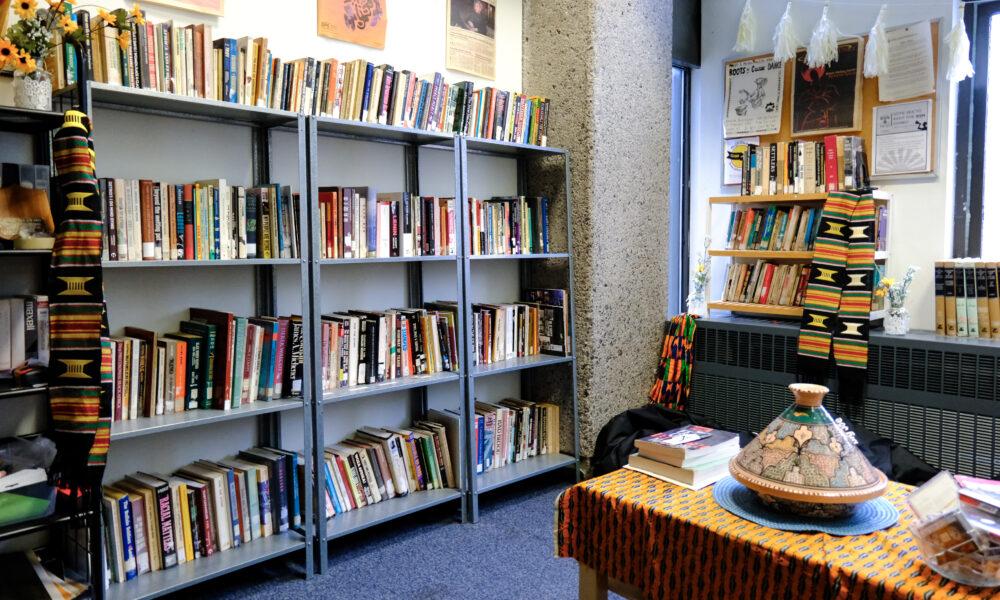McGill’s Black Students’ Network (BSN) opened a Community Library on Feb. 28, 2024, for Black History Month. The Community Library is funded by SSMU student fees that uphold the BSN’s budget alongside the Black Equity Fund, which McGill launched as part of its Action Plan to Address Anti-Black Racism in 2020.
Why was it opened?
BSN President Nkwanzi Banage, U3 Arts, is responsible for the creation of the Library, and is currently in charge of running it. Banage aims to keep the library accessible and free for the entire student body, relying on the participation of volunteers to spread awareness.
“The project was born out of my personal frustration from when I was unable to find an Angela Davis book that [McLennan Library Building] claimed to carry,” Banage elaborated. “These libraries house books that are often not prioritized in mainstream academic collections, and they offer an accessible space for underrepresented perspectives in academia.”
The Community Library is in the BSN office, unit 415 on the fourth floor of the University Centre, and includes a selection of over 400 books curated for Black students.
Banage elaborated on why she finds community libraries to be important spaces within larger institutions.
“These student-led libraries often curate collections that reflect the interests and realities of McGill’s student body, while providing a platform for peer-driven engagement with Black literature,” she emphasized.
What other McGill community libraries exist?
The Quebec Public Interest Research Group at McGill (QPIRG-McGill) hosts another student-run community library that focuses on providing anti-oppressive literature. QPIRG-McGill has been operating since the 1980s, providing resources for students such as offering textbook loans and hosting events over the years.
QPIRG-McGill’s Resource Centre Coordinator, Tatiana Povoroznyuk, reflected on the group’s library space.
“One of the biggest values of having a community library is that it truly is run by the community and we can make decisions quickly and without a lot of the barriers that, for example, McGill libraries face in trying to improve their collections and add voices that may not be super well-spread,” Povoroznyuk said in an interview with //The Tribune//.
The Union for Gender Empowerment (UGE) and Queer McGill jointly run the reportedly largest anglophone queer library with over 1,000 titles. The library is located in the UGE’s office—room 413 of the University Centre.







